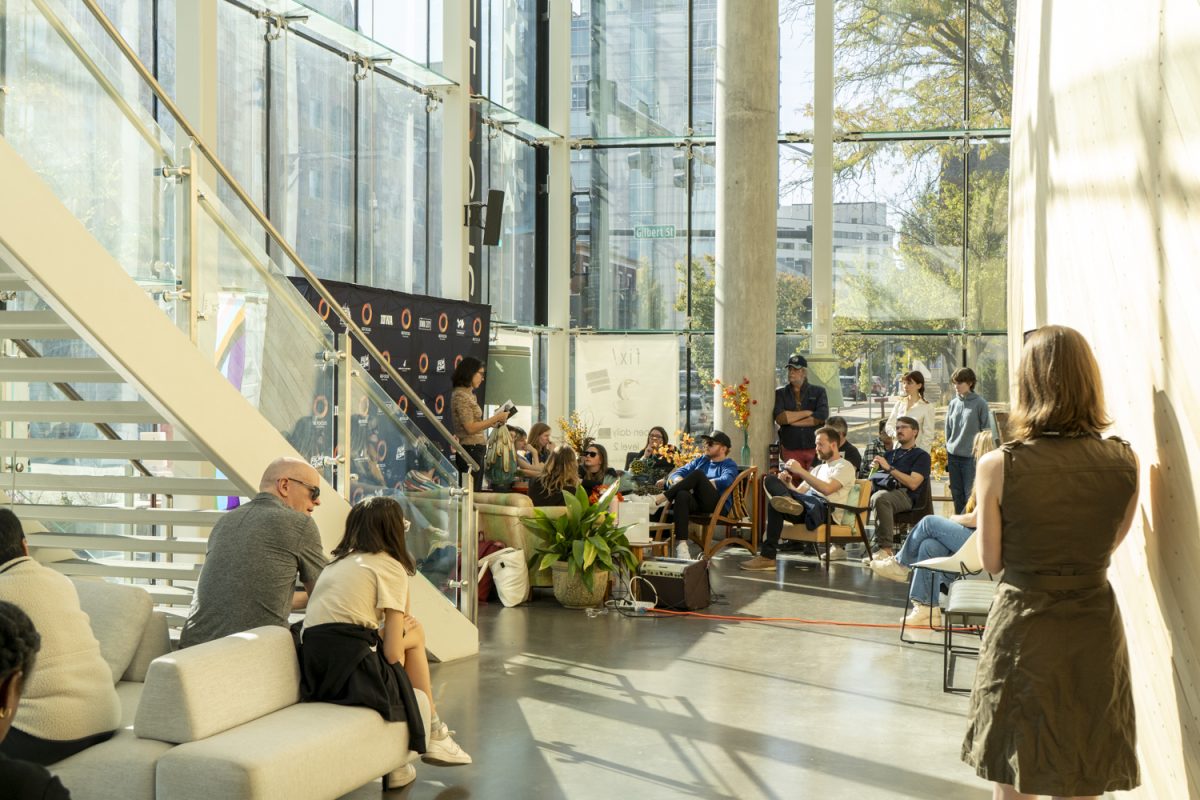Author and University of Iowa educator Hanna Bonner, Iowa Writers’ Workshop alum and film professor Julia Anna Morrison, and poet and filmmaker Perry Janes spoke on a panel during the Refocus Film Festival to discuss the intersection of film and literature.
This interview has been edited for length and clarity.
The Daily Iowan: When did you realize that the films you watch could directly influence and inspire your work?
Janes: It began with another poet’s work: A. Van Jordan has a book called “The Cineaste: Poems,” in which every poem is the title of a classic film. Jordan imagines himself as the protagonist but brings autobiographical details to it. It was a clear model for the interrelation between film and poetry. In my book, there are poems titled after films. There’s a poem called “Killer of Sheep,” named after the film of the same title by Charles Burnett. Writ large for me, a lot of how cinema finds a way into the poems is via my life as a screenwriter, working in Hollywood, the process of my life as a poet, and thinking about how those connect.
Bonner: The switch flipped when I came to Iowa in 2015, and I was getting my master’s in film studies. When I was exposed to experimental cinema again, it evoked a feeling that always made me want to write poems. I was always chasing the experience I had in a theater when I watched those types of films and wanted to replicate that kind of experience.
Morrison: It was reading “Tender Buttons” by Gertrude Stein. She said she wanted to find a literary equivalent for Cubism, and that planted a seed as a teenager. I think that was the flip, but I didn’t experiment with it until I got to the cinematic arts program, being inspired by the work of my peers, and deciding at one point the idea that I had wasn’t working as a poem; it needs to be a film. Knowing what container I should put this idea into and now having this film option. Should this be a poem? Should it be a film?
How did this realization change the way you consume media?
Bonner: It’s changed my relationship with time and where I want to spend my time as a consumer. I’m much more interested now in not what I should be reading but what will light me up as a writer and what will feed my passions and conversations with my friends who are also writers. Just thinking about time, and there is a limited quantity of it, wanting to pick the things that excite me most.
Janes: My cavalier answer is that it’s obliterated my ability to enjoy watching or reading anything. I write and publish poetry and fiction and work full-time as a screenwriter, so watching movies and reading novels and poetry are parts of my analytical brain that I can’t switch off. But, more seriously, I’m constantly looking for the pieces across forms to put into dialogue. I’m constantly trying to pull my film friends into my poetry community, and I’m continually dragging my poetry friends to the latest indie film. So, I am always on the hunt for things that feel like they’re in rich conversation.
Morrison: I’m following my instincts with who I read. Some voices you read make you want to go and write. I follow voices like Amina Cain and Eva Baltasar and allow myself to be influenced.
What advice can you give people to help reframe content and find connections and parallels the way you do?
Janes: By making art a communal experience. When I moved to Los Angeles, I started a book club. It became such a great reminder of the ability to share the things you’re passionate about, that you love, that light you up, that challenge you. Although I hate the word, we are inundated with so much content. Being in conversation with other people whose tastes you admire and respect and who you love and enjoy spending time with is a way to whittle down and create experiences around the art that isn’t just a passive digestion of it.
Morrison: Go to artist talks. In Iowa City, we have many opportunities to meet the makers, so I get a lot out of hearing artists, painters, sculptors, and filmmakers talk about their processes. There’s something about the process that everyone in any medium can find a connection with or some kind of similarity in the creation process.
Bonner: Refocus does a lovely job of doing what we’re talking about. As somebody who writes a lot about cinema, I find the communal experience of a theater very valuable. Being forced to sit in a space where you’re not on your phone, where you’re not distracted, and to experience duration in a cinema is invaluable. It requires a similar kind of attention to writing and reading poetry. It just asks more of you and is much more rewarding.



